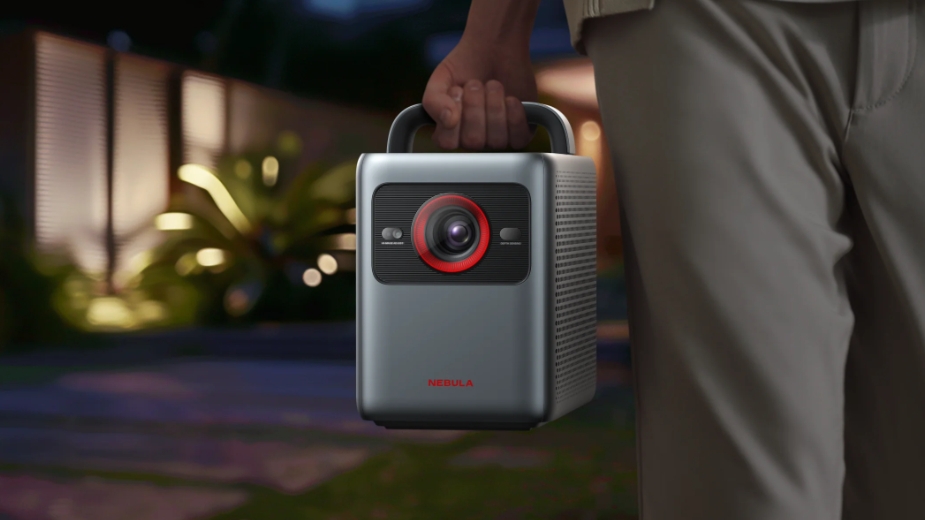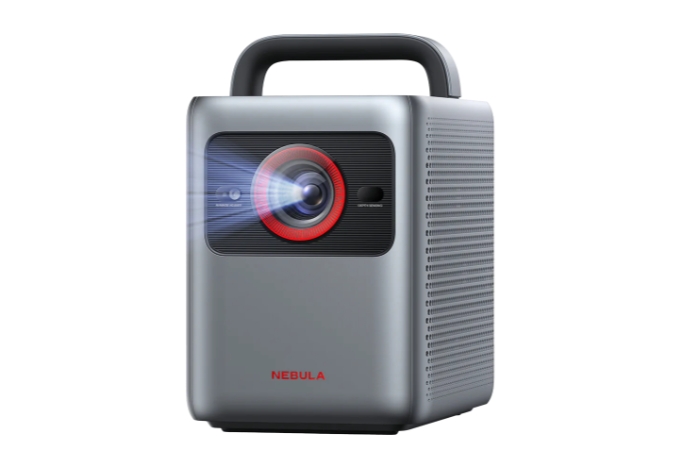The Ultimate Guide to Home Projectors
Home projectors have revolutionized how we experience entertainment. Whether you're a film lover, avid gamer, or someone who enjoys hosting family gatherings, a home projector can amplify your enjoyment by delivering a cinema-like experience in the comfort of your own home. However, with so many options available, choosing the right projector can feel overwhelming. This guide breaks down the essential types, features, and setup tips to help you navigate your options effectively. From portable projectors to those equipped with 4K capabilities, by the end of this guide, you’ll know what to look for and how to maximize the performance of your home projector for any entertainment or professional use.

Which Types of Home Projectors Are Available?
DLP vs. LCD vs. LCoS: What’s the Difference?
DLP (Digital Light Processing) projectors are renowned for their use of tiny mirrors to reflect light, offering high contrast and sharp images that make them ideal for cinematic experiences. However, DLP projectors may occasionally exhibit a “rainbow effect,” particularly in fast-moving scenes. In contrast, LCD (Liquid Crystal Display) projectors use liquid crystals to create vibrant and more accurate colors, making them excellent for presentations and media with static images. LCD models can be bulkier, though. LCoS (Liquid Crystal on Silicon) projectors take the best of both worlds, delivering the top image quality but at a higher price point, making them the choice for those seeking the best image quality without compromise.
Portable vs. Fixed Projectors: Choosing Wisely
When deciding between portable and fixed projectors, consider how and where you’ll use them. Portable projectors, like the Nebula Capsule Air, are compact and easy to transport, making them perfect for on-the-go entertainment. They often include built-in batteries and offer decent brightness and resolution for casual viewing, making them a convenient choice for impromptu movie nights. In contrast, fixed projectors, such as the Nebula Cosmos 4K SE, are intended for a permanent location, delivering higher brightness, better image quality, and features such as auto-focus and keystone correction. Fixed models are typically used in dedicated home theaters, where image quality and immersive experiences are prioritized over portability.

Smart Projectors: Do You Need One?
Smart projectors integrate operating systems like Google TV or Android TV, giving you the ability to stream content directly from apps like Netflix or YouTube without needing an external device. One example is the Nebula Cosmos Laser 4K, which offers a vast library of apps and smart features, making it a highly versatile choice for users who value convenience. With smart projectors, you can reduce cable clutter, control the device with voice commands, and easily access content from a wide array of streaming services. If you prefer an all-in-one solution for your home entertainment, a smart projector can offer the seamless, connected experience you're looking for.
What Features Should You Look for in a Home Projector?
Brightness: Why ANSI Lumens Matter
Brightness is one of the most critical features to consider when buying a projector, as it directly impacts image clarity in different lighting conditions. Measured in ANSI lumens, brightness determines how well the projector will perform in dim or well-lit rooms. For example, the Capsule 3 Laser offers 300 ANSI lumens, which is ideal for dimmer environments or nighttime viewing. If you need a projector for a well-lit room, a model with higher brightness—like the Cosmos Laser 4K, which delivers 2200 ANSI lumens—is a better choice. The more lumens a projector has, the more versatile it will be, ensuring a vivid image regardless of your room’s lighting.
Resolution: Choosing Between 720p, 1080p, and 4K
Resolution plays a vital role in determining the clarity and detail of your projector’s image. A 720p projector, such as the Nebula Capsule Air, is suitable for basic viewing but may lack the sharpness needed for more immersive experiences. For home entertainment setups where clarity is key, a 1080p projector offers full HD quality, perfect for most viewers. However, if you want the sharpest images and ultra-high-definition detail, a 4K projector like the Nebula Cosmos 4K SE is the ultimate choice. It provides breathtaking image quality, especially for movies, sports, or gaming. Your choice of resolution should be based on the type of content you typically consume and your viewing distance.
Contrast Ratio: Enhancing Image Quality
The contrast ratio measures the difference between the darkest blacks and the brightest whites a projector can display, affecting the depth and richness of the image. A higher contrast ratio, such as those found in LCoS projectors, results in more detailed and lifelike images, especially in scenes with shadow or light variations. Projectors like the Nebula Cosmos 4K SE enhance image quality further with VisionMaster image processing, which brings out the naturalness and delicacy of colors. This creates a more immersive viewing experience by making the image feel deeper and more realistic. For anyone prioritizing visual depth and vibrant color reproduction, contrast ratio is a key feature to keep in mind.
How to Set Up Your Home Projector Effectively?
Ideal Screen Size and Distance
One of the most important factors when setting up your home projector is determining the ideal screen size and viewing distance. Larger screen sizes enhance the cinematic feel but must be balanced with the projector's capabilities and room size. For example, the Nebula Capsule 3 Laser can project up to 120 inches, making it suitable for a variety of spaces. Viewing distance should also be considered; placing the projector too far from the screen may result in a loss of image quality, while positioning it too close can cause distortion. Following the manufacturer's recommended guidelines for screen size and distance ensures the best visual experience without compromising image clarity.
Best Room Conditions for Optimal Viewing
To achieve the best viewing experience with your projector, it's important to consider the room conditions. Controlling ambient light is crucial; darker rooms allow for better contrast and brightness, making the visuals more immersive. You’ll also want to project onto a flat, white surface for the best results. If you don’t have a projector screen, a white wall will suffice, but specialized screens can enhance image quality. Some advanced projectors, like the Nebula Cosmos Laser 4K, even come with features like auto wall color adaptation, adjusting the image based on the color of your wall. By managing room conditions, you can maximize the performance of your projector.
Tips for Mounting and Positioning
Proper mounting and positioning are essential to ensure a stable and clear image from your projector. If you're using a fixed setup, ceiling mounts are a great way to reduce clutter and keep the projector out of the way. Portable projectors, like the Nebula Capsule Air, offer easy setup and adjustments due to features like auto-focus and keystone correction, making them more flexible. Ensure that the projector is placed on a level surface and is aligned with the center of the screen to avoid distorted or skewed images. Correct positioning will provide the best possible viewing experience and minimize the need for frequent adjustments.
Conclusion
Choosing right home projectors depends on understanding the different types, features, and setup options available. Whether you opt for a portable model like the Nebula Capsule Air or a high-end projector like the Nebula Cosmos 4K SE, your choice should be based on your specific needs, including brightness, resolution, and contrast ratio. Considering the projector’s placement and room conditions will also ensure that you get the best image quality. With a well-chosen projector, you can transform your home into an immersive entertainment hub, enjoying everything from movies and gaming to presentations with professional-level image quality.
